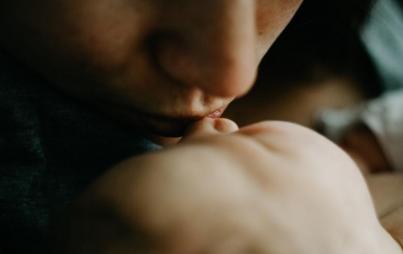
Photo by SHINE TANG on Unsplash
This article first appeared on Your Tango and has been republished with permission.
All too often, we think we are the way we are because of what has happened to us — because of a traumatic car accident, our parent’s divorce, or even something as shattering as the loss of a child.
But the research clearly indicates that there is nothing close to a one-to-one relationship between emotional trauma and symptoms like Post Traumatic Stress Disorder (PTSD).
Did you know that only about 11 percent of the people exposed to trauma develop PTSD? Did you also know that the same percentage actually experience what is now referred to as post-traumatic growth?
A new study underscores the finding that the experience of trauma is in the eye of the beholder. In other words, the experience of trauma is relative. Adriel Boals, in a study published in the Journal of Psychotherapy Integration, found that only 37 percent of objectively traumatic events were experienced as subjectively traumatic.
It is our experience of life — and of traumatic events — that makes all the difference. This is the good news.
There is often little we can do about what happened to us, but a lot we can do about what we make our experiences mean, and how we deal with our feelings about them.
What about the students from Parkland? They have given us an extraordinary example of how to deal with trauma in ways that promote growth and healing. First of all, they are allowing themselves to experience and share their true feelings — the pain of loss and rage at those who stand by and do little or nothing to address the scourge of gun violence.
Then, they took action and, in so doing, have created meaning and purpose out of something traumatic. They are no longer seeing themselves victims simply at the effect of an event. Rather, they are now part of a cause — raising their voices and doing something about gun control.
Research suggests that the loss of a child is one of the most traumatic experiences any parent can have. Yet, even in these cases, there are huge individual differences in response to such a traumatic loss.
You Might Also Like: Take The Cake: Fatphobia Gave Me PTSD
I met and treated two women who both lost a teenage son. One killed himself and the other was hit by a car. We would think the mother of the teen who committed suicide would have the greatest difficulty in coming to terms with this death and all the complicated feelings that accompany it. However, that was not the case.
This mother certainly felt searing pain and guilt about her son’s suicide but refused to wallow in it or define herself and her life by this loss. She established a suicide prevention program in her son’s high school and met and befriended two of the four people who received organ donations from her son. The fact that his death gave life to others and that she had strong spiritual beliefs, helped her to survive this horrendous loss and create meaning in her life subsequently.
In contrast, the other mother made her son’s death the defining event of her life and decided that she would never be happy again. That decision, rather than the accidental death of her son, created her enduring unhappiness.
Of course, the death of a child is deeply painful, but the Buddhists make a distinction between pain and suffering. Pain is inevitable in life but suffering is optional.
The first mother created meaning and connection to her pain whereas the second mother created and added suffering to hers.
What can we learn from all this? While over 80 percent of all adults in the US have been exposed to at least one traumatic event and exposure to several is the norm, only a small percentage develop PTSD. Most of us survive and some will find a way to thrive.
While avoiding our feelings about life’s greatest slings and arrows may have some short-term benefit, it exacts a heavy toll in the long term. Those who chronically repress their feelings simultaneously suppress their immune response, rendering them susceptible to physical illnessand even early death.
Conversely, those who experience and then express their feelings about the most upsetting things that have happened to them — either on paper or to others — get a boost in emotional well-being and physical health.
Finally, looking at the gift in the wound — what you have learned and how you have developed through the most trying experiences of your life, will enable you to move into the phase of post-traumatic growth.
If you can relate, take these actions steps to help you cope and heal:
- Write about the most upsetting things that have happened to you. Focus on the feelings evoked in these situations. While it may be upsetting at the time, research shows you will reap long-term benefits.
- Examine the benefits of having gone through these difficult times. What have you learned? How have you grown? What have you developed that might never have happened if you hadn't experienced these traumatic events?








